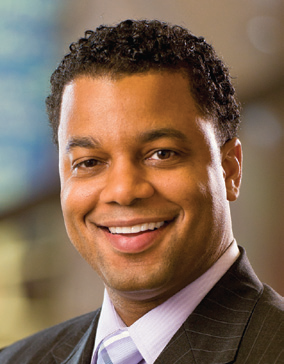By Shaun Hawkins, Chief Diversity Officer, Eli Lilly and Company
ACCESS TO BETTER health is not only about getting proper care. People also must have culturally relevant health resources and programs. As we all know, we’re not all the same.
That is why Lilly is working to understand how cultural differences impact patient outcomes. We’re also striving to discover innovative solutions that meet the health needs of our diverse society.
One key area of focus is increasing diversity in clinical trials. Because medicines don’t work the same for everyone, there is a need to understand how they work and the safety profile in the patients likely to take them. Our goal is to better match the demographic composition of clinical test groups with the disease prevalence rate in the general
population. Some diseases affect African Americans, Hispanics, Asians, and other minority populations disproportionately.
Since the company began focusing on increasing minority participation in clinical trials, more than 300 diverse trial sites have been added that are helping increase minority representation. We also are actively recruiting investigators with diverse patient populations, translating materials into Spanish, sponsoring advisory boards, partnering with advocacy organizations to raise awareness about health disparities and the need for diversity in clinical trials, and addressing barriers of patients getting to clinical trial sites.
The inclusion of diversity also is essential in global health education initiatives. Increasing cultural competency and ensuring multicultural groups have access to healthcare information is a main focus.
Lilly has partnered with nationally recognized health literacy experts to implement new standards to ensure patient communications and resources adhere to health literacy principles.
One educational program is Lilly for Better Health, a patient-focused resource for improving the health and well-being of communities. Resources include a website, conference exhibits, and printed materials, available in both English and Spanish.
In addition, Lilly collaborates with advocacy groups, professional societies, public and private healthcare administrators, and others on programs and other initiatives designed to reduce health disparities and to provide healthcare information to diverse communities.







